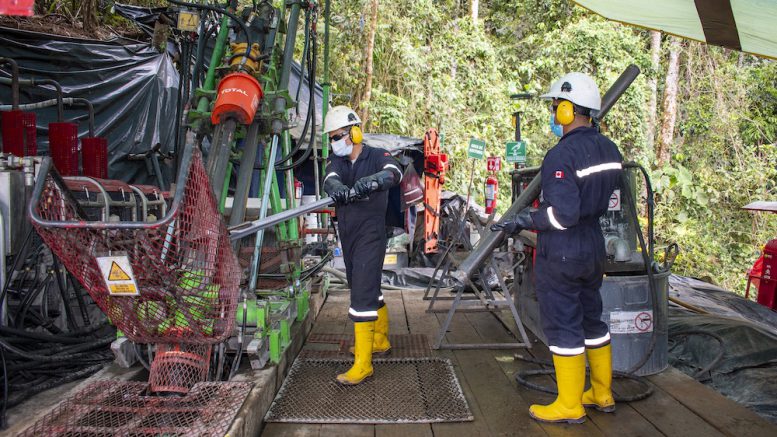Some of Canada’s leading mining law firms say their clients are considering leaving the country because the federal government’s clampdown on Chinese investment has closed off an important funding lifeline.
While deals involving China have been more closely scrutinized for several years — notably since the federal government forced Chinese investors to divest from several lithium juniors with assets outside of Canada in 2022 — the tipping point came just this May.
That’s when Solaris Resources (TSX: SLS; NYSE; SLSR) cancelled a $130-million financing with Zijin Mining after it got hung up in a national security review for four months.
Solaris, which is advancing the Warintza copper project in Ecuador toward a prefeasibility study, pulled the deal after the company’s share price rose well above the transaction price and no longer made sense.
“That this transaction cannot be completed in a reasonable timeframe signals that Canada’s critical minerals policy is counterproductive in relation to foreign assets,” Solaris president and CEO Daniel Earle said in a news release at the time.
Fallout
The deal may have died quietly, without the government having to make a decision under the Investment Canada Act (ICA) review, but the fallout may be far-reaching.
“Clients are asking, ‘Should I get out of Canada? Should I redomicile?’ Is it within my fiduciary duties to look at changing jurisdictions?” Krisztian Toth, a Toronto-based partner at Fasken told The Northern Miner. “They’re wondering, ‘Could this happen to me?’”
While on one hand the federal government has been trying to kickstart investment in critical minerals supply chains needed for the energy transition, its inconsistent moves on Chinese investment have been damaging, he noted.
Toth questions the government’s definition of national security, noting that Zijin’s investment would have bought a minority 15% stake in the company, just one of five board seats, and involved an asset located outside of Canada.
In March, Montreal-based SRG Mining (TSXV: SRG) cancelled a $16.9-million deal with China’s Carbon ONE New Energy Group to take 19.4% of the graphite miner, which has a development stage asset in Guinea. That was after the company announced last year it would redomicile to the United Arab Emirates to avoid an ICA review.
Canada’s not the only one shutting out Chinese investment as Western nations try to compete with the Asian giant, which controls most critical minerals processing and supply chains. Australia recently forced Chinese investors to divest from rare earth developer Northern Minerals (ASX: NTU). The United States is also trying to sideline China with rules that will eventually exclude electric vehicles made with Chinese-sourced materials from EV tax credits.
Closed door
Chinese companies have emerged as a key funding source for cash-hungry developers in South America and Africa, where Western miners, investors and governments are missing in action, McMillan lawyers wrote in a bulletin last week.
“The Canadian federal government’s apparent refusal to permit a minority investment into Solaris appears to close the door on these investments, even where none of the operating assets are in Canada,” McMillan partners Joshua Krane, Michael Taylor and Sasa Jarvis wrote.
Moreover, McMillan says miners should anticipate national security review periods of seven to nine months — longer than the 200-day maximum outlined in the Investment Canada Act.
“Faced with this regulatory environment, Canadian incorporated mining companies with global, non-Canadian projects need to consider whether maintaining their status as Canadian companies is feasible in view of the long-term financing prospects for their projects.”
Until 2009, when Canada adopted a national security regime, the Investment Canada Act only applied to takeovers of big Canadian businesses, McMillan said. Amendments introduced in December 2022 and passed earlier this year gave the government more power to limit foreign investment.
National security
Companies looking to tap foreign direct investment without fear of a drawn-out national security review or potential rejection can consider picking up and moving, the firm said.
Redomiciling a company could shelter companies from the Investment Canada Act (ICA), but it is a drastic step, as outlined by McMillan.
“To sever the application of the ICA, Canadian miners need to take steps to ensure they do not have an entity in Canada that has a place of business, employees or assets in Canada.”
The move has tax implications that companies will need to mull.
Fasken’s Toth says Bermuda is one jurisdiction clients are considering.
His advice to the federal government?
“Don’t kill every company touched by China at an early stage. Development companies don’t pose a risk.” Toth said, suggesting the government could regulate where production goes for producing companies instead.
“There are better ways to deal with it than the sledgehammer of national security.”


Be the first to comment on "Dead Solaris deal has cash-strapped Canadian miners considering the door"